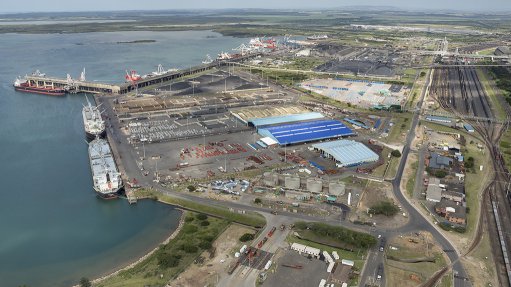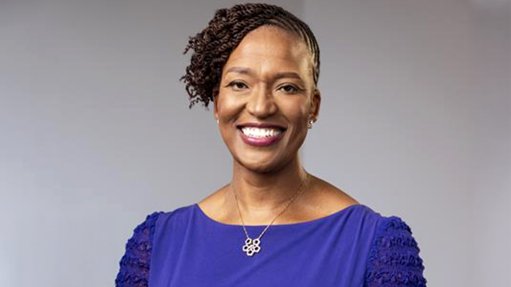Digital solutions can help address Africa education challenges – BCG
Technology can strengthen education at all levels, starting from early childhood to adult training, and digital solutions can also help to address the main challenges faced by the African school system, says management consulting firm Boston Consulting Group (BCG).
In its 'Boosting education technology in Africa: scaling innovation for the future of education' report, it notes that more than one-billion children will be living on the continent by 2055.
“The BCG analysis indicates different ways in which digital solutions can deliver a scalable, cost-effective means to reach all populations.”
For example, Malagasy gamified technology skills courses provider Sayna connects its learners to lucrative IT micro-tasks. Additionally, Kenyan education platform Eneza Education has hit five-million users living in remote areas through basic phones, and improving exam scores by 5%, BCG says.
“These statistics could grow, if Africa’s digitalisation expands. Projections are encouraging, with mobile penetration expected to reach 51% in 2025, up from 3% in 2010,” says BCG Casablanca MD, partner and education, employment and welfare lead Badr Choufari.
Technology may be Africa’s most powerful tool for promoting education. However, three different challenges loom, including that of the more than 400 education technology startups founded on the continent, half of them are located in only three countries, namely Kenya, Nigeria and South Africa.
Further, 64% of education technology startups in Africa serve primary and secondary K-12 levels, while fewer address higher education and professional skills, the report highlights.
In contrast, North American education technology startups emphasise workforce training and higher education more heavily, with only about 25% focusing on K-12, about 50% targeting vocational and workforce learning, and the remainder 25% serving higher education, BCG notes.
Funding remains a major issue, as education technology accounts for only 4% of African technology fundraising, it adds.
Additionally, the slow progress in education technology in Africa is further compounded by the dominance of very early-stage startups. More than half of African education technology startups are at the pre-seed stage, and 13% reach the seed stage.
The landscape is very different in countries such as India or the US that benefit from a more balanced distribution across funding stages, the report says.
Despite the challenges, Africa’s education technology sector has the capacity to improve its scaling results if sufficient funding is secured and efficient policies and collaborative networks put in place.
Domestic strategies, such as active sourcing, technology grants and subsidies, could generate a hospitable environment encouraging education technology’s expansion, the report states in its recommendations.
“Rwanda’s ICT policy should set an example. It aims to extend connectivity nationwide, thereby integrating digital tools to classrooms, reinforcing teacher training and spreading student access to programmes. Though fairly recent, its impact can already be measured.”
The report also recommends that organisations and users should understand their mutual requirements in order for education technology solutions to be tailored to meet needs on both ends. For example, education platform SkillsFuture Singapore matches workforce demands with education outputs.
Development finance institutions have supported African financial technology startups. Similar initiatives could foster the rise of education technology companies, as well as public-private partnerships, donor programmes or venture capital. All of these could, in turn, create professional openings, BCG notes.
Further, Africa has very few accelerators dedicated to education technology. However, increasing mentorship, funding and networking efforts could promote cross-border growth, it states.
Article Enquiry
Email Article
Save Article
Feedback
To advertise email advertising@creamermedia.co.za or click here
Press Office
Announcements
What's On
Subscribe to improve your user experience...
Option 1 (equivalent of R125 a month):
Receive a weekly copy of Creamer Media's Engineering News & Mining Weekly magazine
(print copy for those in South Africa and e-magazine for those outside of South Africa)
Receive daily email newsletters
Access to full search results
Access archive of magazine back copies
Access to Projects in Progress
Access to ONE Research Report of your choice in PDF format
Option 2 (equivalent of R375 a month):
All benefits from Option 1
PLUS
Access to Creamer Media's Research Channel Africa for ALL Research Reports, in PDF format, on various industrial and mining sectors
including Electricity; Water; Energy Transition; Hydrogen; Roads, Rail and Ports; Coal; Gold; Platinum; Battery Metals; etc.
Already a subscriber?
Forgotten your password?
Receive weekly copy of Creamer Media's Engineering News & Mining Weekly magazine (print copy for those in South Africa and e-magazine for those outside of South Africa)
➕
Recieve daily email newsletters
➕
Access to full search results
➕
Access archive of magazine back copies
➕
Access to Projects in Progress
➕
Access to ONE Research Report of your choice in PDF format
RESEARCH CHANNEL AFRICA
R4500 (equivalent of R375 a month)
SUBSCRIBEAll benefits from Option 1
➕
Access to Creamer Media's Research Channel Africa for ALL Research Reports on various industrial and mining sectors, in PDF format, including on:
Electricity
➕
Water
➕
Energy Transition
➕
Hydrogen
➕
Roads, Rail and Ports
➕
Coal
➕
Gold
➕
Platinum
➕
Battery Metals
➕
etc.
Receive all benefits from Option 1 or Option 2 delivered to numerous people at your company
➕
Multiple User names and Passwords for simultaneous log-ins
➕
Intranet integration access to all in your organisation


















